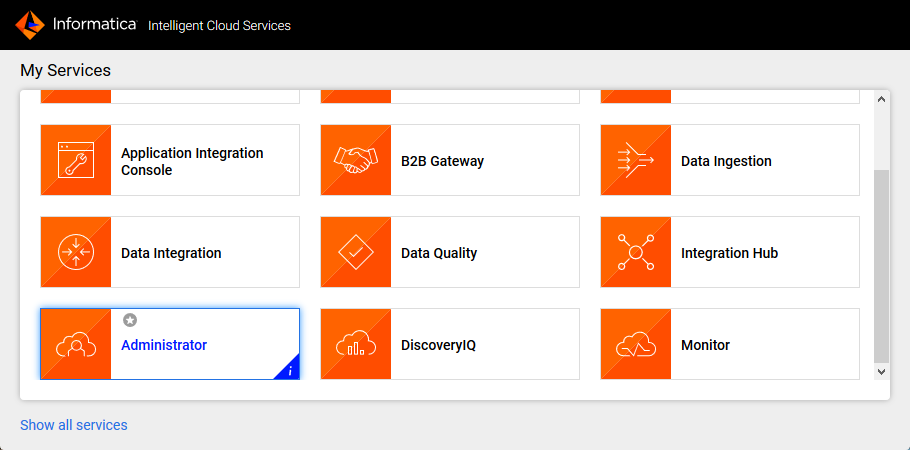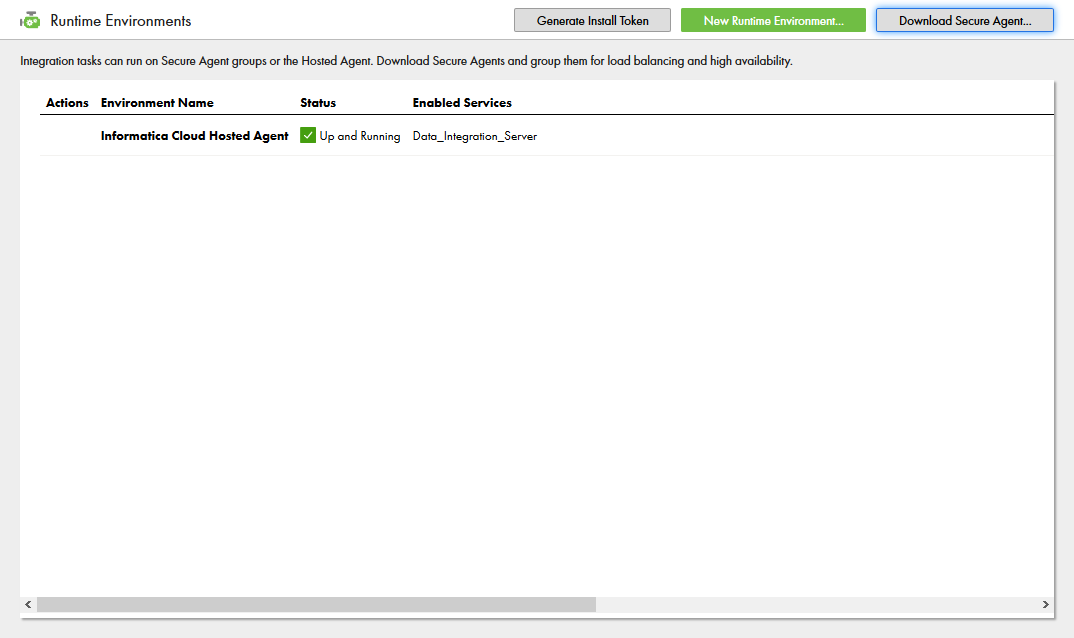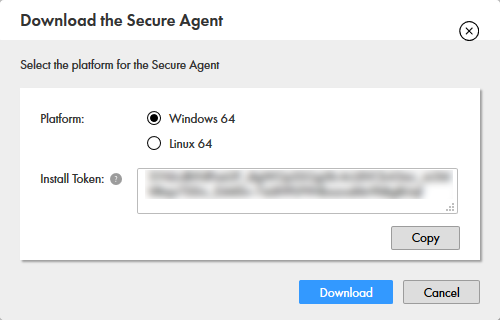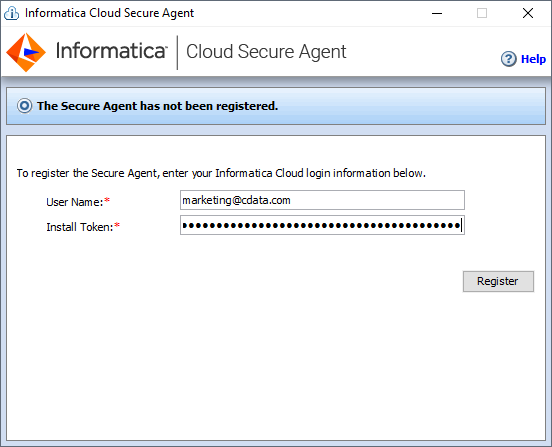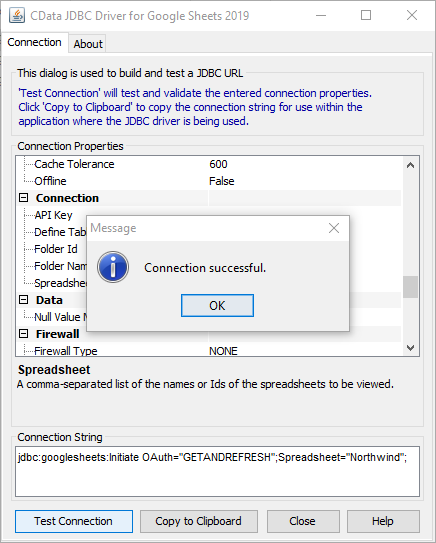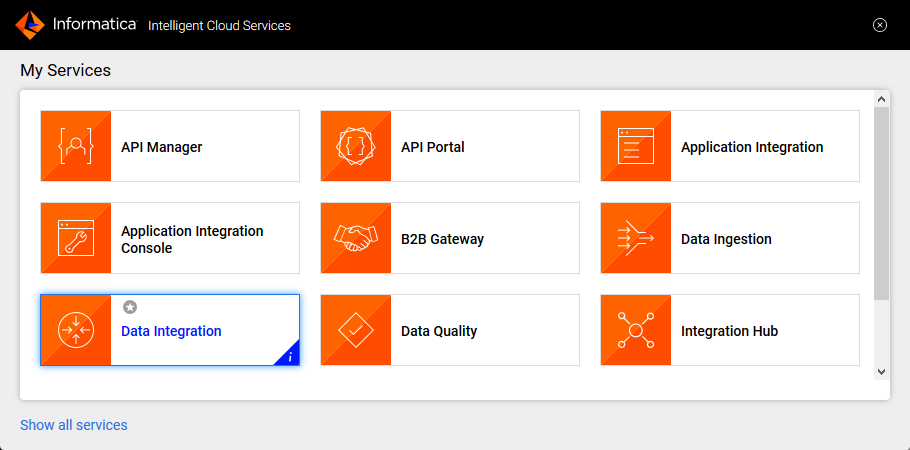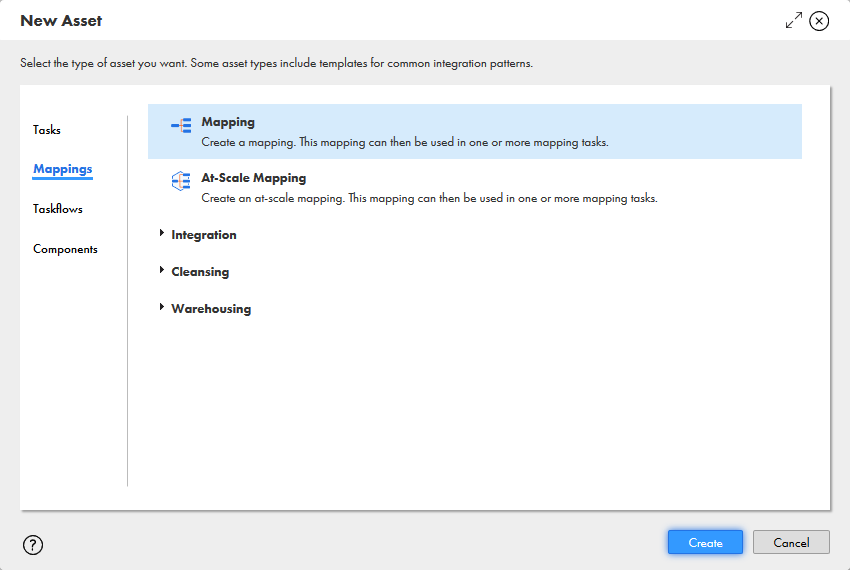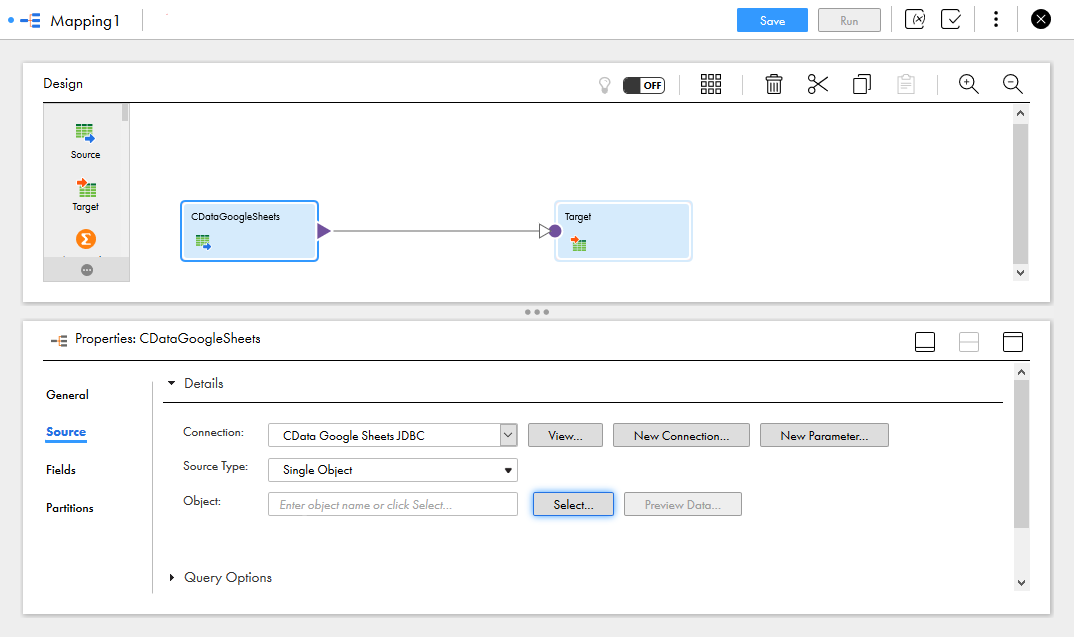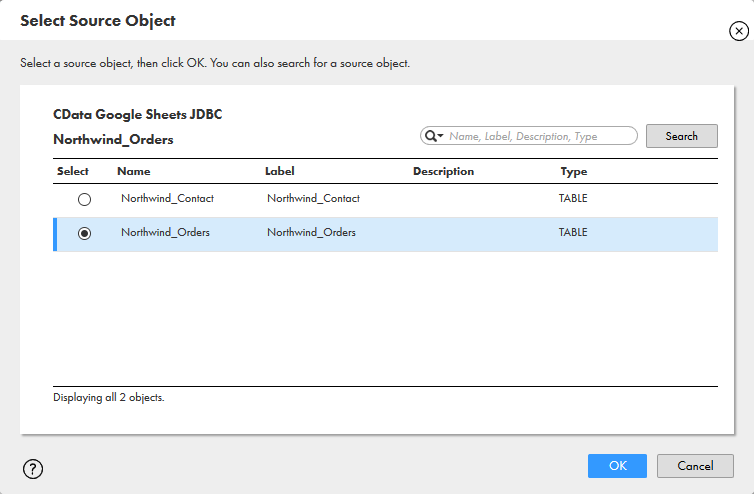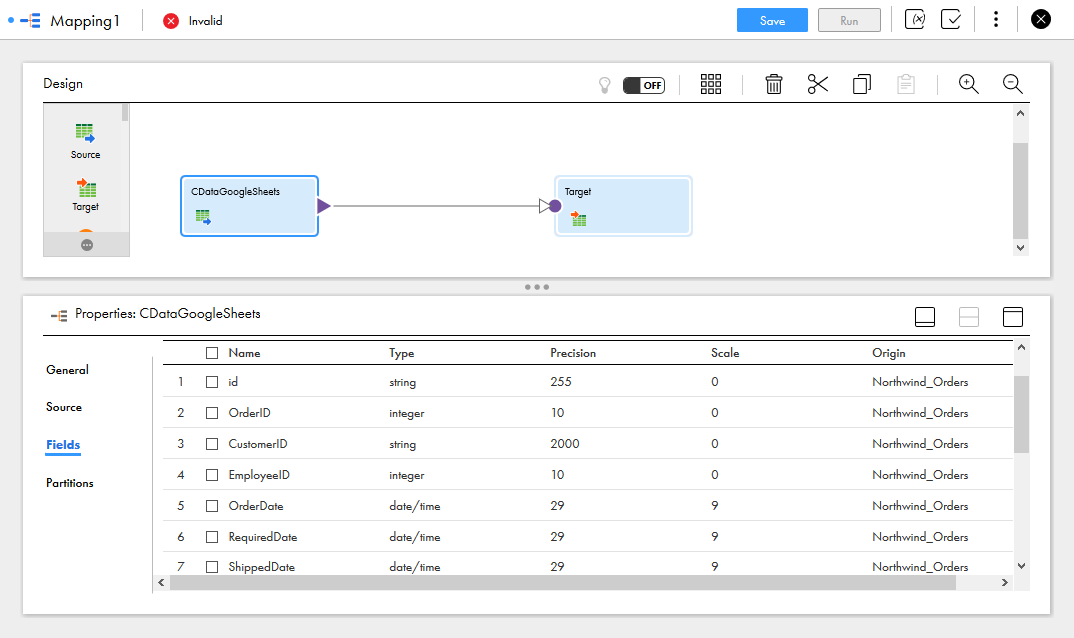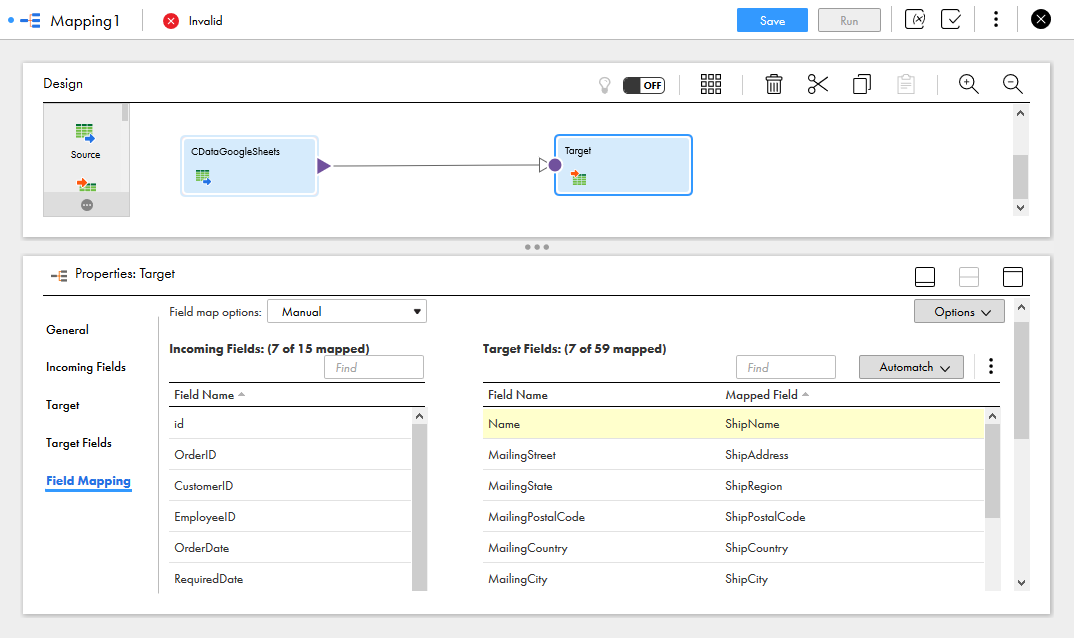Discover how a bimodal integration strategy can address the major data management challenges facing your organization today.
Get the Report →Integrate BigCommerce Data in Your Informatica Cloud Instance
Use CData JDBC drivers with the Informatica Cloud Secure Agent to access live BigCommerce data from Informatica Cloud.
Informatica Cloud allows you to perform extract, transform, and load (ETL) tasks in the cloud. With the Cloud Secure Agent and the CData JDBC Driver for BigCommerce, you get live access to BigCommerce data, directly within Informatica Cloud. In this article, we will walk through downloading and registering the Cloud Secure Agent, connecting to BigCommerce through the JDBC Driver and generating a mapping that can be used in any Informatica Cloud process.
Informatica Cloud Secure Agent
To work with the BigCommerce data through the JDBC Driver, install the Cloud Secure Agent.
- Navigate to the Administrator page in Informatica Cloud
![]()
- Select the Runtime Environments tab
- Click "Download Secure Agent"
![]()
- Make note of the Install Token
![]()
- Run the installer on the client machine and register the Cloud Secure Agent with your username and install token
![]()
NOTE: It may take some time for all of the Cloud Secure Agent services to get up and running.
Connecting to the BigCommerce JDBC Driver
With the Cloud Secure Agent installed and running, you are ready to connect to BigCommerce through the JDBC Driver. Start by clicking the Connections tab and clicking New Connection. Fill in the following properties for the connection:
- Connection Name: Name your connection (i.e.: CData BigCommerce Connection)
- Type: Select "JDBC_IC (Informatica Cloud)"
- Runtime Environment: Select the runtime environment where you installed the Cloud Secure Agent
- JDBC Connection URL: Set this to the JDBC URL for BigCommerce. Your URL will look similar to the following:
jdbc:bigcommerce:OAuthClientId=YourClientId; OAuthClientSecret=YourClientSecret; StoreId='YourStoreID'; CallbackURL='http://localhost:33333'InitiateOAuth=GETANDREFRESH;BigCommerce authentication is based on the standard OAuth flow. To authenticate, you must initially create an app via the Big Commerce developer platform where you can obtain an OAuthClientId, OAuthClientSecret, and CallbackURL. These three parameters will be set as connection properties to your driver.
Additionally, in order to connect to your BigCommerce Store, you will need your StoreId. To find your Store Id please follow these steps:
- Log in to your BigCommerce account.
- From the Home Page, select Advanced Settings > API Accounts.
- Click Create API Account.
- A text box named API Path will appear on your screen.
- Inside you can see a URL of the following structure: https://api.bigcommerce.com/stores/{Store Id}/v3.
- As demonstrated above, your Store Id will be between the 'stores/' and '/v3' path paramters.
- Once you have retrieved your Store Id you can either click Cancel or proceed in creating an API Account in case you do not have one already.
Built-In Connection String Designer
For assistance in constructing the JDBC URL, use the connection string designer built into the BigCommerce JDBC Driver. Either double-click the .jar file or execute the .jar file from the command-line.
java -jar cdata.jdbc.bigcommerce.jarFill in the connection properties and copy the connection string to the clipboard.
![Using the built-in connection string designer to generate a JDBC URL (Google Sheets is shown.)]()
- JDBC Jar Directory: Set this to the lib folder in the installation location for the JDBC Driver (on Windows, typically C:\Program Files\CData[product_name]\)
- Driver Class: Set this to cdata.jdbc.bigcommerce.BigCommerceDriver
- Username: Set this to a placeholder value (since BigCommerce does not require a username)
- Password: Set this to a placeholder value (since BigCommerce does not require a password)
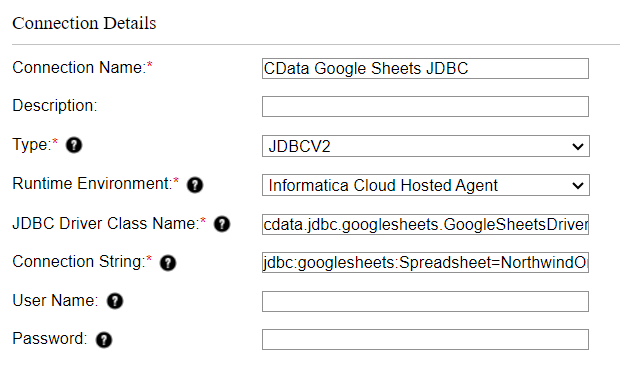
Create a Mapping for BigCommerce Data
With the connection to BigCommerce configured, we can now access BigCommerce data in any Informatica process. The steps below walk through creating a mapping for BigCommerce to another data target.
- Navigate to the Data Integration page
![]()
- Click New.. and select Mapping from the Mappings tab
![]()
- Click the Source Object and in the Source tab, select the Connection and set the Source Type
![Selecting the Source Connection and Source Type]()
- Click "Select" to choose the table to map
![Selecting the Source Object]()
- In the Fields tab, select the fields from the BigCommerce table to map
![Selecting Source Fields to map]()
- Click the Target object and configure the Target source, table and fields. In the Field Mapping tab, map the source fields to the target fields.
![Selecting the Target Field Mappings]()
With the mapping configured, you are ready to start integrating live BigCommerce data with any of the supported connections in Informatica Cloud. Download a free, 30-day trial of the CData JDBC Driver for BigCommerce and start working with your live BigCommerce data in Informatica Cloud today.






